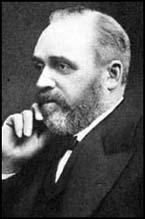William Crawford

William Crawford was born in Whitley, Northumberland, in 1833. He started work in the mines at the age of ten. Soon afterwards he suffered a serious injury. Doctors wanted to amputate his leg but his father refused. While recovering his health he was able to attend Seaton Sluice School and so was better educated than most of his fellow miners.
As a young man he became a part-time Primitive Methodist preacher and an advocate of temperance and social reform. Crawford was also active in the emerging trade union movement and played a key role in the formation of the Northumberland and Durham Mutual Confident Association. In December 1863 Crawford was elected general secretary.
Crawford was replaced by Thomas Burt in June 1865 when he decided to became secretary of the Cowpen co-operative store at Blyth. After working for about a year for the co-operative society he began business on his own account at Bedlington. However, he returned to trade union activity when he was offered the post of full-time agent for the recently formed Durham Miners' Union (DMA) in May 1870. At the end of the year he become president and from 1872 acted in addition as secretary of the DMA.
Crawford's biographer, William Redvers Garside, has argued: "The union was formed at an opportune time. Trade was beginning to boom and continued to do so until 1873 when conditions quickly changed. During 1873 coal prices fell. Demand was far lower than the industry's capacity to produce coal and this was reflected in the continued reduction of wage rates. The union's early responses to these troubled times bore the mark of Crawford's influence. Although he had a lasting concern to improve legislative regulation over coalmining accidents and workmen's compensation, he was driven in his regular dealings with miners and colliery owners by more personal and powerful instincts. Committed to the cause of improving the position of working men through trade union action, he consistently opposed unconstitutional strike action. As a religious nonconformist he was opposed to industrial militancy; only by moderation and tolerance did he foresee negotiations being maintained with the coal owners on the basis of mutual respect. He worked hard to establish and maintain conciliation boards and representative committees to establish wage levels in general and colliery price lists and tonnage rates in particular."
Crawford was considered by many as short-tempered and intolerant. A member of the Liberal Party, was extremely hostile to socialism. He was elected to the House of Commons for Mid Durham, in the 1885 General Election. He participated very little in parliamentary affairs, and never once spoke on the floor of the house. Crawford held the seat until his death on 1st July 1890.
